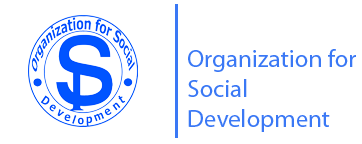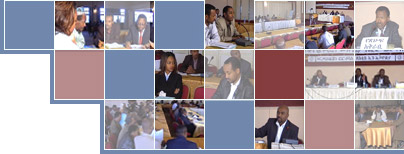Building local organizational capacity towards ensuring accountability in basic socio-economic service delivery at grass roots levels
With the financial support of World Bank, a project targeted to strengthen the use of Social Accountability tools, approaches and mechanisms by citizens, government officials and service providers so as to make the health and education service delivery more equitable, effective, efficient, responsive and accountable is implemented.
The project is carried out in Yabello woreda. Necessary committees selected from various stakeholders are formed and conducted discussions on the efficacy of health and education service provision. Projected results of the project are building of an effective system that sustains, owns and steers the application of Social Accountability tools by citizens, woreda level administration and service providers in the implementation and monitoring of public service delivery; improvement in the accessibility, quality, efficiency and effectiveness of education service by facilitating successful implementation of community scorecard by stakeholders; and effective implementation of participatory planning and budget steps and procedures by organized committees in the woreda and respective targeted kebeles towards improving health care services.
Enhancing Developmental Partnerships among the Private Sector, Civil Society and the Government for the Improvement of Education and Health Services in Benishangul Gumuz Region.


This project was based in Benishangul Gumuz Regional state; in the five werdas of kemashi zone.
Financed by Civil Society Support Programme ; the peoples of Denmark, Ireland ,Norway, The Netherlands, Sweden and United Kingdom
The overall objective of this project is to enhance the social operational standard of the private sector; in the areas of special needs education and services, females enrolment and reduction of female dropouts in the first grade, family planning utilization and on the care and support of people living with HIV?AIDS in kemashi Zone.
The specific objectives of the project focus on: raising the awareness level of the community , private stake holders and the government bodies about Corporate social responsibility to contribute in their respective area of specification and specifically on the areas of special need, uninterrupted females enrolment in education and care and support of peoples living with HIV/ AIDS
Empowering the families of children living with disabilities and female student dropouts, by giving business skill training the initial capital to help them establish a sustainable lively hood.
Augmenting developmental partnership among the private sector, civil societies and the government, to improve the welfare of various disadvantaged and vulnerable groups in the area
Project Strategies
The main project strategy was the institution of agreement between OSD and the local implementing partners that will oversee and direct the project. The local implementing partners were composed of the business/private sectors, institutions working with vulnerable and disadvantaged groups of the society and associations of vulnerable and disadvantaged groups.
The preparation of manuals and conducting awareness raising workshops and trainings that focus on the Social responsibility that business sectors have towards their community. These trainings were delivered to the business/private sectors as well for the disadvantaged and vulnerable groups.
The other strategy used was the employment of a referral system among institutions (governmental and nongovernmental) that work on the provision of physiological, health, economical, educational and social services to victims of traumas, people living with disabilities, people living with HIV/AIDS and other vulnerable and disadvantaged groups of the society.
“Enhancing Public-Private partnership for the conservation of Sheka Biosphere Reserve”


Biodiversity hotspots are areas identified based on their high rate of diversity, endemism and quantity of floral and faunal species than other areas. Among the eight hotspot areas Africa is part of, the Eastern Afromontane hotspot incorporates more than ten thousand species of fauna and flora. However, out of the 1 million square kilometer seized by this particular hotspot, so far, only 15% is under protection for conservation.
Ethiopia is one of the countries where the Eastern Afromontane hotspot touches down. In regard to this, the overall objective of the project is provision of sustainable livelihood mechanisms for the population living in the area so as to limit the pressure made on the biodiversity resources. Plus by enrolling the private sector to conduct environmentally sensitive projects, the adverse impacts made on the environment can be diminished. Above all creating linkage between the business establishments with the local community and local decision makers is an essential object for the conservation of the hotspot.
The project aspires to achieve Better knowledge and understanding of environmental management among the private sector to correct existing and future projects, Possible utilization of the private sector’s financial resources and expertise for the betterment of the community and effective environmental conservation and Stimulating enhanced relationship/ coordination/ collaboration among private sectors, local governmental institutions and the community, thus to facilitate effective conservation of the eastern Afromontane biodiversity hotspot.




